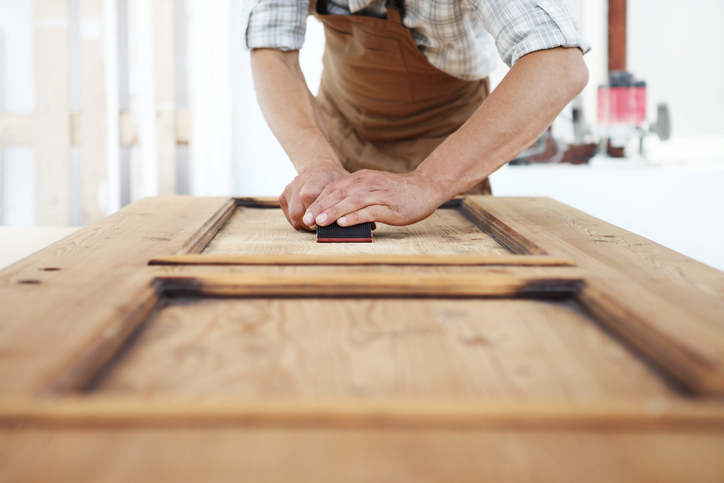
Slow furniture refers to furniture that is not mass-produced but rather made by a craftsperson slowly and carefully, ensuring a higher quality product with less waste. We live in an age of mass production in basically all industries, including furniture. If you’ve ever heard someone say, “They don’t make them like they used to,” they are usually referring to the reduction in quality that comes with mass-produced products. The fact is that hand made products take longer, are more labor intensive, and, therefore, cost more. There are pros and cons to each method of production, but it’s important to think about the impact slow furniture has on our environment, our health, and our lifestyles. Just like “fast food” is not the best for our health (or wallets), “fast furniture” is not the best for us, either. Here are a few insights into slow furniture and why it may be worth the higher price tag and longer production time.
1. Less Waste
Cheaper, lower-quality furniture tends to need replacing every few years. This leads to a tremendous amount of furniture getting thrown away, clogging up landfills and causing a huge problem if increased waste. In fact, the EPA reported that about 80% of furniture waste ends up in landfills. Furniture is particularly complicated to recycle because it is made up of a variety of materials that are difficult to take apart for recycling purposes. Many fast furniture pieces also contain materials like chipboard that are made with hazardous chemicals.
Just like there is more attention being brought to the fashion world with people trying to avoid “fast fashion” as much as possible in order to buy fewer higher-quality products and reduce waste, such attention needs to be brought to the furniture world, too. Fast furniture is part of a destructive culture of seeing everything as disposable. Aside from this not being a healthy attitude to have towards the items in our life, it’s also not healthy for our environment.
2. Ethical Production
Artisans and furniture craftsmen who are trained in the trade, faced with appropriate working conditions, and paid fairly will help revolutionize the furniture industry. Unfortunately, the cheaper furniture that is mass-produced in factories is often made in less-than-ethical conditions by workers who are overworked and underpaid in order to quickly churn out popular products. By purchasing these products, consumers are unintentionally supporting an unethical work environment. Purchasing “slow furniture” supports those who create ethical workplaces for their workers.
3. Less Expensive in the Long Run
Though slow furniture may have a greater up-front cost, the higher quality means it will last you for decades. If you can swing it, paying more today will save you significant money later. Replacing furniture every few years adds up considerably over time. If you are concerned with furniture looking outdated, there are ways to refinish or reupholster it to keep it looking fresh and in style without having to actually replace it. You will save money that way and help keep more furniture from ending up in landfills–plus, you’ll get the benefit of having a high-quality piece of furniture. You know if you’ve ever sat at a table or on a couch that is made of cheaper materials how you can actually feel the difference. Why not invest in furniture pieces that feel strong, comfortable, and supportive, and that will actually last you a lifetime?
At Howard’s Upholstery, we are committed to providing you with high-quality furniture. Our experts will craft for you custom pieces to fit your home and your style that will last you for years. Additionally, we refinish, repair, and reupholster existing furniture–whether an heirloom, purchased from an estate sale, or that is just a good-quality piece you feel is out of date–so that you can continue to enjoy it for the future.
















